This past summer I had dinner with John Lovett ( the movie star; 3 Amigos, etc) at The Lexington Green in Lexington, Ky. This is a photo that Chesteen took of us as I was conversing with him about my 2 novels which he now has, etc. John referred me to Jerry Bruckheimer which never got my novels--but his wife did.
|
Hi again. I just read the first few pages and I wanted to tell you your writing is wonderful. I will go through the entire manuscript in the next few days. I'm pleasantly surprised as unsolicited submissions, as you might imagine, are mostly dross.
More soon... Best, Wendy Wendy Goldman Rohm Literary Agent Unlike his first novel, NEFARIOUS, or the more recent collected short stories, BLACK BLUEGRASS, Earl Lowell “Robbie” Robbins Jr. pens THESE PRECIOUS DAYS (TPD) as the noirish two-year diary of an eastern Kentucky writer’s (NO SWEAT) existential observations during a period of his waning youth. Like most significant writers of the American South, bleakness is pervasive throughout the work, even down to the pseudonyms given to those that haunt the primary social strata of his realm (e.g., Black Hole, mentor, Dark Star, best friend, Black Widow, beautiful temptress, etc.). The more luminous names given to his beloved (e.g., Sensi, Bright Eyes, True, etc.) are themselves shadowed by their juxtaposition to the troubled and often tragic family dynamic.
Set in the hills of eastern Kentucky, the town of Aoephh is spatially, temporally, and culturally isolated; however, the author selects events from his adventurous experiences to demonstrate that it perfectly represents the human condition in all places and in all time. In many respects Aoephh’s isolation allows Robbins to probe deeper into reality and truth than those typical self-aggrandizing reflections made from the safety of the cosmopolitan salons and cafes. During this 2-year period of time, 1981 to 1983, No Sweat (NS) begins to confront his past, present, and future through the struggles of his mentor, Black Hole (BH). BH is a West Point graduate who changed services to become a Cold War B-52 pilot, and finally Air Force Academy professor and intellectual who lived in what Eliot called the “shadow” that separates the idea and reality. Ultimately, human pain and darkness feed BH’s demons to demise. NS’s struggle, although never explicitly admitted, appears to be with the same demon attractions. Like BH, NS leaves Aoephh at every chance and had the physical and mental resources to stay away, but always returned. No one escapes Aoephh or life, but for death. Although Robbins’ has undoubtedly been influenced by many of the great writers, he has crafted a writing style that is unique. He keeps the dialog short and focused, but manages to accurately capture the local dialect without distraction. His wordsmith distills and concentrates the essence of the characters and their circumstance. The senses are completely captured in a grand impressionistic manner, and the reader is led through the entire bandwidth of emotion, whether it is the outrageous comedy of a moonshine purchase in the mountains or the haunting sorrow of his mother’s illness. Whatever the emotion, TPD is an implicit and explicit reminder of the pain-of-living each of us endure, but to our detriment bury within the chaos and insanity of daily affairs. Robbins’ challenges the reader to examine the fragile restraints on their inner demons, and provides a short respite through this well-crafted diary to breathe the pheromones and boldly walk in their tender shadow. Edward W. Woolery, Ph.D. Engineering Seismology and Geophysics University of Kentucky Department of Earth and Environmental Sciences 101 Slone Research Building Lexington, KY 40506-0053 Hi Gene Save the best to the last; the Jan 1 edition article [Peg Leg by No Sweat] is amazing, personal, sensational and entertaining. This is why I am in the sport and also reading your Mag. Thanks! Calvin Markham, Ontario, Canada Gene Yoes, Editor & Publisher Racing Pigeon Digest
Gene, There are pigeon stories, and then there are pigeon stories. "Heaven Roosted There" by No Sweat in your last issue is one of the finest I have ever read, and I have been reading the best literature, in and out of the pigeon game, for years. No Sweat captures the rush and the passion of looking at pigeons as a child, but he does so much more. He evokes both the love of pigeons and the soul of growing up. His bridge of pigeons is another kid's old overall factory, or silo, or meat packing house, or condemned apartment house (at the top of which someone like Chas. Heitzman had the pigeons of a god). Kudos to him for his writing. And thanks so much for running it. Old Fret PRESS RELEASE INTERVIEW WITH KENTUCKY AUTHOR, "NO SWEAT" RICHMOND, KENTUCKY APRIL 30, 2012 E. Lowell "Robbie" / "No Sweat" Robbins, Jr., a former graduate of Irvine High School '69 , a graduate and post graduate of Eastern Kentucky University, recently became a recognized author across America. Over the past 22 years Robbins has been employed as a supervisor of The Hope Center, a homeless shelter in Lexington, a logistics officer for CSEPP program in Richmond, and now, he is currently employed by EKU as an operator at their heat plant. About four months ago, he received an email from Rudy Thomas, an editor representing OLD SEVENTY CREEK PRESS. Rudy loved Robbins' novel, making an offer on it; a contract was eventually agreed upon. Now, this past week, THESE PRECIOUS DAYS by No Sweat, has been released across the United States and Europe. It is being sold via AMAZON, BARNES AND NOBLE and is soon to be out through every major venue throughout the world. THESE PRECIOUS DAYS is but one of seven novels that Robbins has written, the others yet to land a publisher. You can find the novel by going to, AMAZON.COM and then typing in, THESE PRECIOUS DAYS by No Sweat. Question, "What is it like to be a published author?" "It is nothing as someone might think. There's been no hoopla. No pigeons being released. No bugles icing the air. No flags being unfurled. Actually, it's been somewhat the opposite. No matter who publishes you the expectation of what they want from you remains much the same. I am now finding myself having to work just as hard as ever in seeing the novel surface. This past week I entered into negotiations with several small book stores, including Joseph-Beth's in Lexington." Question, "How long have you been writing?" "I began writing as a small boy. I don't remember at what age. But I remember sitting alone in a chair in the corner of my parent's apartment with a big pencil and writing stories just to please myself. I won some small essay contest at Irvine Graded School on why I love America. I was a feature writer along with Darrell Richardson for our little Irvine High School newspaper and later, I became the feature editor for The Irvine Times Herald before the newspaper was sold to my friend, Guy Hatfield. In college, at EKU, I contributed articles to The Eastern Progress about the swim team that I was on. During this time I began writing stories for various pigeon magazines throughout the United States and across the world. On occasion I wrote articles that appeared in many other magazines that dealt with archeology and areas of my interest. When I turned 30 years old I set out to write my first novel. I completed that work four years later. Now, I am almost 61. And after more than a thousand rejections from literary agents and editors, one of my poor novels has surfaced. You must have a dream in order for a dream to come true." Question,"Who has influenced you or helped you the most in becoming an author?" "Without any doubt, my wife, Chesteen. Without her support for the past 45 years I would probably be dead or in prison. She's been incredibly patient and sensitive toward my desire of being an author. I know that I have driven her and everyone around me crazy. Writers come in all colors and mine has always been, black. Besides Chesteen, my next door neighbor for 17 years while I lived in Ravenna, Kentucky, Lindy Yeager; Lindy greatly inspired me as he was not only a brilliant man but also something of a saint. Lindy introduced me to Guy Davenport in Lexington. I didn't have a clue who Guy was but what followed was wonderful. Guy fell in love with my work and gave me exactly the reinforcement I've had to have in order to get this far. Guy was a Rhodes Scholar and literary critic, the foremost authority on James Joyce in the world. He was also the recipient of the JOHN D. MACARTHUR AWARD for his genius in literature, receiving $250,000 in tax free cash. Guy and I met about once a month at his home for nearly ten years and in that time he sent me some 400 letters. He told me that I would have to develop the hide of a rhino in order to see my work prevail." Question, "Were you a good English student in school?" "I was nothing short of a nightmare. I hated everything about English. And I know that my poor English teachers deservedly hated me. But I have always loved stories. My father was a great story teller. And all my loving uncles were all great story tellers. There was nothing like it when they would all be together. Each person unavoidably always trying to out tell the other. That was always true heaven for me. I suppose all that somehow rubbed off." Question, "What is THESE PRECIOUS DAYS about?" "This 510 page work is different from all my other novels in form and content. It is written as a journal. Each journal entry has a small introduction. And then each journal entry owns a name that is a song title popularized by Billie Holiday. Next, there is a date. And after that, each journal entry follows. Even the journal entries vary in form, sometimes being a letter or even a poem. The journal's main setting is in a mythical place in eastern Kentucky called, Aopehh, around 1982." Question, "How did you get the pen name, 'No Sweat?'" "I've adopted it as my Mark Twain. No Sweat and Mark Twain essentially mean the same thing, that everything is OK. I was given the name when working at a dive shop off Singer Island. I was working as the safety diver, the person that watches over and guides other divers. One day one of the paying divers asked, 'What happens if sharks come?' The boat captain looked over at me and told her, 'Don't worry, No Sweat is with you, Like it not, the name stuck. Obviously, no employer wants to hire anyone named as such." Question, "What would you say, makes a writer?" "For me, compulsion. And failure. You either own certain artistic desires or you don't. You either own that compulsion to make them become reality or you don't. You must fall in love with words and how they are used.There is an entire scam-world out there of writing schools, literary agents and whathaveyou that feeds off of poor, would-be -authors, taking their money, telling them they are going to make them great and wonderful published authors. I should know as in my life I have been a victim to such; Stephen King's literary agent once told me that it would be a cold day in hell before anyone would publish my work. Well, hell has now frozen over. There is no set guide to be a writer. For me, I have listened to my heart and little else. Today, I'm seeing the rapid downfall of the major publishing houses; the smaller publishers are gaining in strength through computer technology and its ability to mass market. The entire publishing industry is quickly becoming an even playing field. In the next 20 years, books will cease to exist, short of collectors." Question, ""What are your goals?" "First, to do all I can to see my grandsons prepared for life after I am gone. As an author, I am of great hopes that I will be able to sell NEFARIOUS within the next year. I feel it owns my best writing. It is the story of a traveling preacher and his nephew. Both are con artist. But you can't help but love them. The main setting is in Estill County, 1836-57. My dream is to see it in a theater. I grew up inside my grandfather's theater. My mom sold tickets there. The theater was my one real home. I can still shut my eyes and describe every inch of it. I had the best grandfather in the world. So humble and kind. His theater will always remain inside me." Question, "What authors do you most admire?" "In Kentucky, Robert Penn Warren and Walter Tevis. Warren and I corresponded the last years of his life.Tevis was remarkably gifted. It amazes me that so few recognize who he was. For a brief stint, he once taught English at Irvine High School. He is buried near where I currently live in Richmond. Above those two, Mark Twain, Tennessee Williams, Edgar Allan. Poe, Ernest Hemingway; I'm partial to all of 'The Lost Generation authors.' There is a strong soul owned in their writings. I've never read anything better than NIGHT OF THE IGUANA. Poe was a true genius. And Hemingway, well, it was inevitable that I crossed his path, particularly the Gulf Stream. I was with Luisa Lang when she committed suicide. Her father, Will Lang, was one of Hemingway's best friends, both being WW2 correspondents for LIFE magazine. When Luisa died, I was given all the handwritten letters she owned from Hemingway." Question, When do you find time to write?" "It has varied all my life. It depends on my circumstances. I write everywhere; MacDonald's, cemeteries, in the woods, in caves, on boats, you name it. Very early in the morning is best. When you are a fictional author and immersed in writing you live in two worlds. It's easy to become lost in your creation. When you are, there is nothing quite like it, you feel selfishly grand; later, you realize that you are blessed to live life twice and that your memory is absolutely everything. A book is a strange creature as you never know where it will go. But you realize that it will survive long after you are gone. Knowing that, you have an obligation to make it the best you can .For every word I have written and saved there must be thirty thousand that I have thrown in the garbage. Good work requires tons of discipline. Twain and Hemingway averaged 300 words a day, about one page. I've never been able to come close to that.There's days I might write twenty pages and throw it all away.If I can save a small paragraph, it is a victory. And then, later, it'll probably get thrown away,too. I've learned not to talk about writing. Nobody really has a clue what you do. When Guy Davenport first came to Kentucky he told me that he had never been so surrounded by such people claiming to be writers. And that he couldn't pitch an anvil without hitting one of them." |
Writing & ReviewsNo Sweat Robbie Robbins Categories
All
Archives |
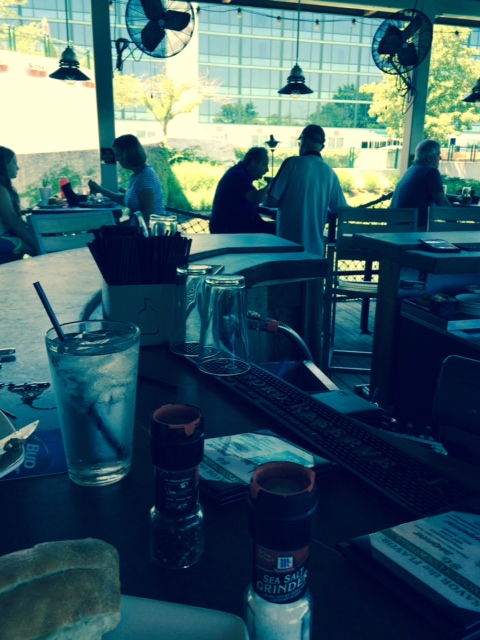
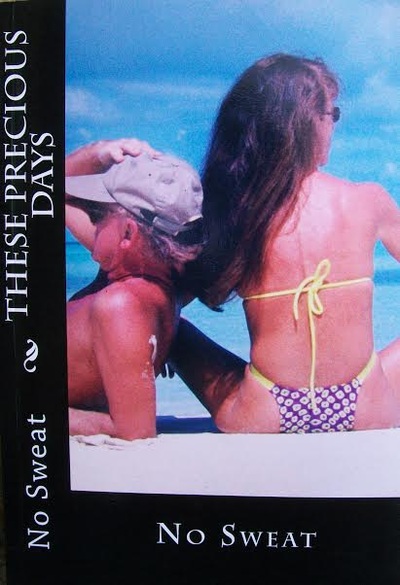
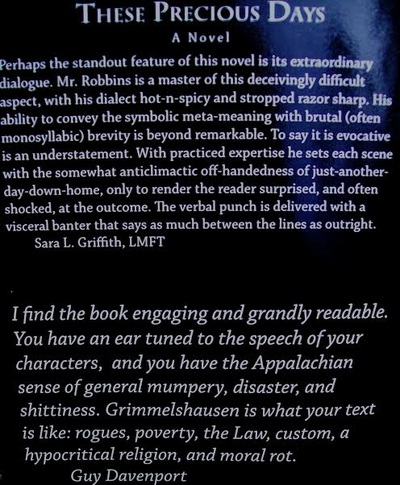
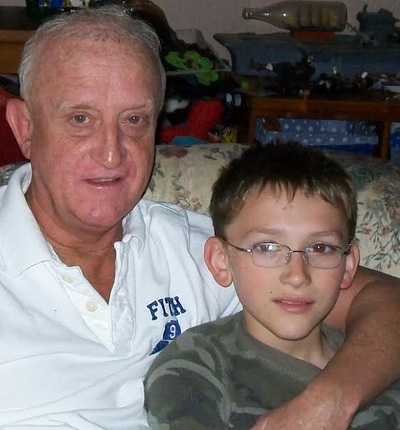
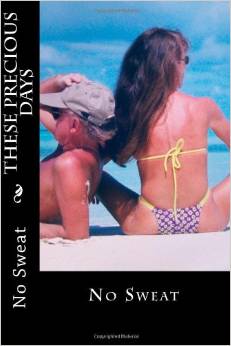
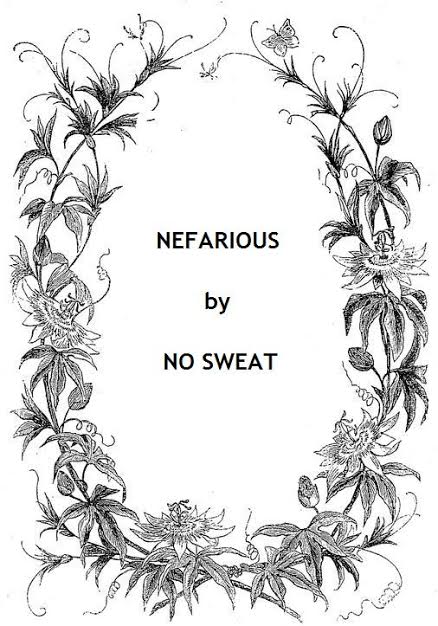
 RSS Feed
RSS Feed